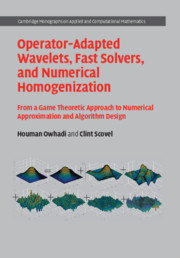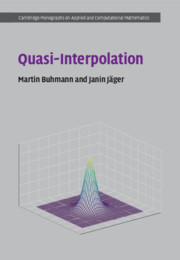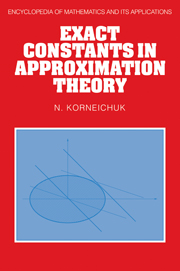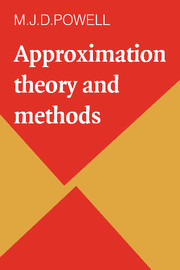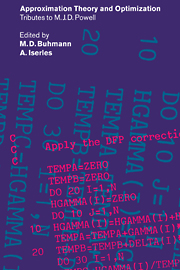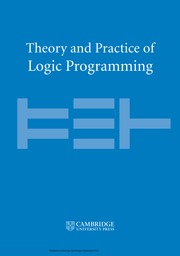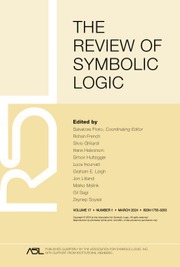Operator-Adapted Wavelets, Fast Solvers, and Numerical Homogenization
From a Game Theoretic Approach to Numerical Approximation and Algorithm Design
£141.00
Part of Cambridge Monographs on Applied and Computational Mathematics
- Authors:
- Houman Owhadi, California Institute of Technology
- Clint Scovel, California Institute of Technology
- Date Published: October 2019
- availability: In stock
- format: Hardback
- isbn: 9781108484367
£
141.00
Hardback
Other available formats:
eBook
Looking for an inspection copy?
This title is not currently available on inspection
-
Although numerical approximation and statistical inference are traditionally covered as entirely separate subjects, they are intimately connected through the common purpose of making estimations with partial information. This book explores these connections from a game and decision theoretic perspective, showing how they constitute a pathway to developing simple and general methods for solving fundamental problems in both areas. It illustrates these interplays by addressing problems related to numerical homogenization, operator adapted wavelets, fast solvers, and Gaussian processes. This perspective reveals much of their essential anatomy and greatly facilitates advances in these areas, thereby appearing to establish a general principle for guiding the process of scientific discovery. This book is designed for graduate students, researchers, and engineers in mathematics, applied mathematics, and computer science, and particularly researchers interested in drawing on and developing this interface between approximation, inference, and learning.
Read more- Features over seventy-five color figures that illustrate key concepts and formulas
- Offers a self-contained treatment of the subject, covering a large array of topics, which can serve as a training ground for young researchers
- Includes worked examples that teach readers to guide their own investigations
Reviews & endorsements
'This is a terrific book. A hot new topic, first rate mathematics, real applications. It's an important contribution by marvelous scholars.' Persi Diaconis, Stanford University
See more reviews'This book does a masterful job of bringing together the two seemingly unrelated fields of numerical approximation and statistical inference to produce a general framework for developing solvers that are both provably accurate and scale to extremely large problem sizes. It seamlessly integrates concepts from numerical approximation, statistical inference, information-based complexity, and game theory to reveal a rich mathematical structure that forms a comprehensive foundation for solver development. Of tremendous value to the practitioner is a thorough analysis of solver accuracy and computational requirements. In addition to providing a comprehensive guide to solver development and analysis this book presents a unique perspective that provides numerous valuable insights into the solution of science and engineering problems.' Don Hush, University of New Mexico
'This unique book provides a novel game-theoretic approach to Probabilistic Scientific Computing by exploring the interplay between numerical approximation and statistical inference, and exploits such links to develop new fast methods for solving partial differential equations. Gamblets are magic basis functions resulting from a clever adversarial zero sum game between two players and can be used in modeling multiscale problems with no scale separation in numerical homogenization. The book provides original exposition to many topics of the modern era of scientific computing, including sparse representation of Gaussian fields, probabilistic interpretation of numerical errors, linear complexity algorithms, and rigorous settings in the Sobolev and Banach spaces of these topics. It is appropriate for graduate-level courses and as a valuable reference for any scientist who is interested in rigorous understanding and use of modern numerical algorithms in problems where data and mathematical models co-exist.' George Karniadakis, Brown University
Customer reviews
Not yet reviewed
Be the first to review
Review was not posted due to profanity
×Product details
- Date Published: October 2019
- format: Hardback
- isbn: 9781108484367
- length: 488 pages
- dimensions: 252 x 178 x 27 mm
- weight: 1.07kg
- contains: 83 colour illus.
- availability: In stock
Table of Contents
1. Introduction
2. Sobolev space basics
3. Optimal recovery splines
4. Numerical homogenization
5. Operator adapted wavelets
6. Fast solvers
7. Gaussian fields
8. Optimal recovery games on $\mathcal{H}^{s}_{0}(\Omega)$
9. Gamblets
10. Hierarchical games
11. Banach space basics
12. Optimal recovery splines
13. Gamblets
14. Bounded condition numbers
15. Exponential decay
16. Fast Gamblet Transform
17. Gaussian measures, cylinder measures, and fields on $\mathcal{B}$
18. Recovery games on $\mathcal{B}$
19. Game theoretic interpretation of Gamblets
20. Survey of statistical numerical approximation
21. Positive definite matrices
22. Non-symmetric operators
23. Time dependent operators
24. Dense kernel matrices
25. Fundamental concepts.
Sorry, this resource is locked
Please register or sign in to request access. If you are having problems accessing these resources please email [email protected]
Register Sign in» Proceed
You are now leaving the Cambridge University Press website. Your eBook purchase and download will be completed by our partner www.ebooks.com. Please see the permission section of the www.ebooks.com catalogue page for details of the print & copy limits on our eBooks.
Continue ×Are you sure you want to delete your account?
This cannot be undone.
Thank you for your feedback which will help us improve our service.
If you requested a response, we will make sure to get back to you shortly.
×
